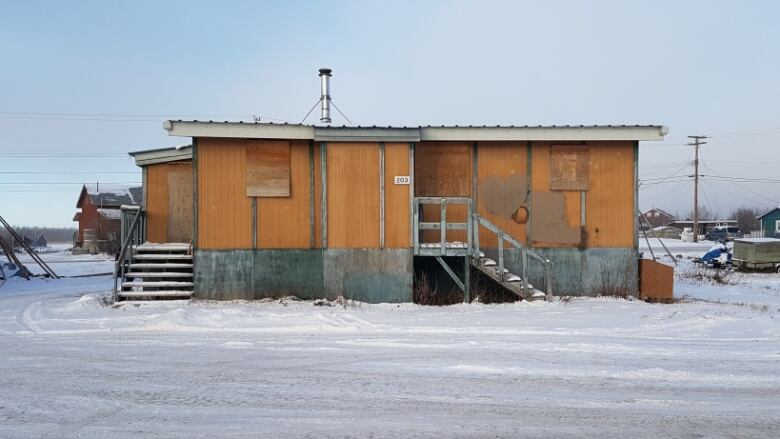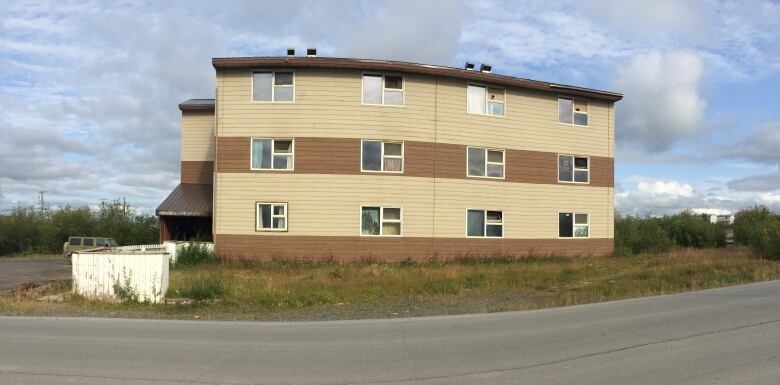N.W.T. Housing Corp. increases spending in 2018-19, but mostly on market housing
N.W.T. Housing Corporation built 8 new market houses this fiscal year

The N.W.T. Housing Corporation spent $4.2 million more in 2018-2019 than in the previous fiscal year, but more than half of that went to programs for private homeowners, its annual report shows.
Expenditures on maintenance for public housing, meanwhile, dropped by a little over two per cent and outside a partnership with the Inuvialuit Regional Corporation (IRC) that saw ten units constructed in the Beaufort Delta region, the housing corporation built no new public housing units this year.
The N.W.T. Housing Corporation administers more than 2,400 social housing units across the territory. In addition, it runs a number of programs to improve access to market housing and support private homeowners with renovations and upgrades.
The annual report, tabled in the legislature Dec. 12but describing the year ending March 31, 2019, offers a window into the corporation's operations, which have been the subject of, at times, intense criticism.
The corporation's biggest spending increase was in support of "homeownership assistance programs," which includes funding for would-be and current homeowners to acquire and renovate private properties.
That includes STEP, a series of courses designed to educate homeowners; PATH, a home ownershipassistance program for N.W.T. residents; and CARE, a funding program for preventive repairs.
The report says the "notable increase" is due to policy changes made to make the programs easier to access including reduced co-payment requirements.
At the same time, the corporation decreased its spending on public housing repairs and maintenance, despite survey numbers showing a dramatic increase in core housing need.
A 2019 community survey showed 42 per cent of houses had major problems with affordability, basic amenities or crowding,
The annual report says about 14 per cent of public housing is in need of repair. An increase in public housing costs of approximately one per cent is "primarily attributable"to write-downs on the new IRC properties acquired last year.
The report also says the corporation increased their revenue from public housing tenants by eliminating subsidized utility rates.
"Public housing tenants now pay the same electricity rates as private households," the report reads. "In addition to assisting with the decline in CMHC[Canadian Mortgage and Housing Corporation] funding, this initiative is also helping to promote tenant self-reliance and environmental stewardship through reduced power consumption."

More money from territory, feds
In 2018-2019, the corporation saw increased funding from the territorial government for the first time since 2015. But the $77.8 million the territory spent is still less than it did before a major spending cut three years ago.
It also came as the CMHCshrunk their contribution by more than 20 per cent, to $19.5 million from $25.1 million.
The CMHC plans to end their contribution to territorial housing programs by 2038-39, but a new federal funding agreement guarantees the corporation more than $84 million over the next nine years.
The corporation also signed an agreement for $3.6 million in bridge funding until that agreement takes effect, and collected more than $10 million in transfers from the IRC.
As a result, the corporation enjoyed one of its biggest surpluses in years, reporting $22.6 million in revenue over its expenses.
The report says a surplus is necessary to support more than $12 million in third-party loans. It also notes, however, that the corporation "recognizes the importance of having its available net financial assets reinvested in a timely manner."
A "reinvestment plan," already in place, will see the surplus spent on housing projects that have already been planned and approved.
The surplus year means the corporation now holds $47.8 million dollars in cash or cash-equivalent reserves 80 per cent of which the report says is earmarked for reinvestment.
Over the past fiscal year, the corporation says it has built eight new market units and replaced 20 old units of public housing.
It's also piloting a new funding program for Indigenous governments and municipalities that want to invest in public housing, and has created a new "housing stability worker" position, which provides support for 13 public housing tenants in Behchoko.












_(720p).jpg)


 OFFICIAL HD MUSIC VIDEO.jpg)
.jpg)



























































































